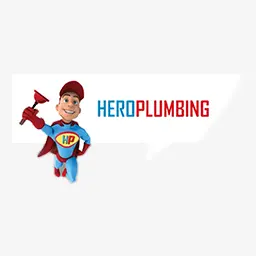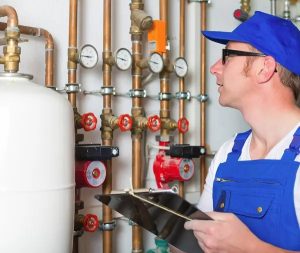Table Of Contents
Hot Water System Repair
Any appliance that uses hot water is likely to have several issues: normal wear and tear, lack of maintenance, or any other problem. There are two main types of water heaters; electric and gas water heaters. This article will discuss several factors affecting most electric water heaters. We’ll also discuss what you can do to avoid them and how you can address the situation if they occur.
Reasons Electric Hot Water Systems Don’t Heat
The pilot light is out
For those using gas hot water systems, one reason your water is not hot or heater is not working may be because the pilot light is out. Gas water heaters depend on the pilot light to ignite the gas within the heating system to heat the water.
It’s important to note that the pilot light remains on even when the furnace has been turned off. One of the reasons the pilot light may be off is if there’s a sudden gust of wind or lack of fuel from the gas provider. In addition, your gas lines are bound to be damaged and corrode after some time. If you don’t have a constant supply of fuel, your pilot light could go out.
While replacing faulty gas lines is a costly task in many instances, restarting the pilot light is an inexpensive and straightforward solution. You might even be able to fix it yourself.
A tripped circuit breaker
Electric heaters rely on electricity instead of natural gas to heat water. The first thing you need to do if you’re losing hot water is to look at the circuit breakers. Are there any breakers that have tripped? If yes, then reset the breaker to observe what happens.
If your breaker keeps tripping, it could be a grave issue. Breakers that don’t stay in their “on” position may have malfunctioned due to age or too much work. Turn it off, take 20 seconds, and then flip it again. If it still isn’t working, contact a professional for replacement.
A failing thermostat
If the water you are using isn’t hot enough, you might have an inefficient thermostat. This adjustable thermostat controls hot water temperature, ranging between 90 to 150°F (32.2-65.5 C). Most electric water heaters have two thermostats, the upper and lower thermostats, which should be set at identical temperatures.
If one breaks, it will force the other to perform twice as hard, which results in it not being as efficient in heating the water. If the water is always cool, it could be an issue with the heating element that is higher up. The short-lived flow of hot water could show a problem with the lower heating element. Regular inspection and maintenance can protect against damage.
To determine which thermostat is in error, shut off the power and remove the two access covers on the tank’s sides. Remove the insulation and examine the thermostat’s upper reset button to determine whether it’s been activated and ensure that both thermostats have been set to identical settings.
If the water inside the storage tank is less than 90°F (65.5 C), you can use a multi-meter to verify the continuity of the thermostats. If the continuity is less than 90°F (65.5 C), the thermostat has failed.
Defective heating element
If you continue to use your water heater for a long time, the components will wear out. One most abused component will be the heater element. When the elements that heat your heater’s water fail, you won’t have hot water.
For most heating systems, electric water heaters have lower and upper heating elements. If you are experiencing a major lack of hot water, the upper heating element will be the most likely cause. Lack of hot water could show a lower heating element in some cases. The heating elements are simple to test with the multi-meter and don’t require the heater’s removal.
To test, switch off the power, then take off the two access covers on the bottom that cover the tank. Remove the insulation and find the parts. Test the distance from the opposite terminals, and you should see between 10-20 ohms of resistance for each element. There shouldn’t be any continuity between the terminals or the tank’s body. If one of these tests fails, the element is not working correctly.
It is necessary to drain the water heater before replacing the element to fix this. Switch off the water inlet valve. Next, attach a water hose to the drain valve to eliminate the water. The temperature relief valve and the hot water units should be opened to ensure that the amount of water falls below the hole for the element. Be careful because the water may be hot.
Storage tank issues
The storage tank affects the heating efficiency of a water heater. First, if you own a traditional water heater, you’ll have hot water when the water inside the tank becomes hot. If there’s not enough water inside the tank, then you won’t be able to get hot water flowing from your faucets. Also, the lack of hot water can be attributed to too many hot water units running simultaneously.
Second, if your family size has grown with time, the storage tank might not meet your water demands. It’s the perfect time to get an increased capacity heating tank. If you consider upgrading, keep in mind that electricity-powered water heaters require longer to get hot. Before installing a modern water heater, knowing the tank’s capabilities is essential. Examine your water flow rates, recuperation speed, and hot water tank capacity.
Other Issues Concerning Your Storage Tank
Leaking water tank
Are there pools of water surrounding the tank of your heater? If so, a leaky tank may be the source of your water problems. Leaks can cause water to pool inside the compartment or underneath the tank. If the water seeps into your thermostat, the entire system can malfunction.
Sediment affecting the heating element
Sediments are likely to build up near the water tank base if you’re using hard water. Minerals such as calcium and magnesium are likely to build up. The resulting sediment could reduce the efficiency of the lower heating element, which results in only lukewarm flow out of your hot water faucet.
To address this issue, clean your water tank frequently to eliminate any mineral deposits. To prevent repeating the problem, think about installing a complete softening water system.
Tripped cut-off switch
Electrical water heaters come with an off-high-temperature switch. If the switch goes off, the heater ceases to function, and it won’t make hot water. If you don’t have hot water, check the switch on the back of the tank or in an enclosure. It’s possible to hit the reset button to turn off your heating system back to hot. If the power is restored but doesn’t work, you may need to replace the switch.
However, this shouldn’t be an ongoing problem. If your switch continues to be cut off, there could be an underlying issue that requires an expert to fix.
A damaged dip tube
Coldwater from your pipes is connected to the water heater through the dip tube. Typically, the dip tube funnels water to the tank’s base so that it can be heated. However, if you have damaged or broken dip tubes, the chances are that they will just dump the water at the top of the heating tank.
In the end, the water will flow back into your appliances and faucets while it remains lukewarm. There could be a lack of consistency in changing between hot and cold and even being cold. This is prevalent in older water heaters.
Signs Of A Failing Electric Water Heater System
Coloured water from the faucets
The presence of rusty or murky water is one of the most common indicators that the water heater might be in danger of failing. Water heater tanks have an exterior coating that helps prevent corrosion, but it does not last. When the coating becomes thin, rust develops rapidly.
Rusty water is a way to tell the heating tank for hot water is getting worse. It’s not necessarily harmful to your well-being, but it may cause discolouration to appliances and harm their parts. It’s also not very delicious. If the issue is minor, replacing the anode rods could extend the unit’s life.
Taking too much time to heat water
Suppose you’ve never cleaned your heater or have a lot of water with sediment that could settle within the tank. The accumulation of sediment means less room available for boiling water, which you’ll not use quickly. This is a clear sign that the water heater is getting inefficient.
If the issue is not addressed for a long time, the unit may not be workable to get the sediment out of the system, and you could end up with clogged and corrosion-prone valves. Here, you’ll have to replace the water heater. If you do, you may be interested in the possibility of a tankless instead of a traditional water heater.
Leaks from the water tank
Leaks can signify that you have a water heater that may be in trouble. It is possible to see water pouring out of the tank or sitting underneath the unit. You may also see pipes that leak water.
It’s possible that the valves aren’t closed completely, or the connectors are loose. The valves may require either replacement or tightening. If the tank is leaking, you are left with no other choice than to replace the water heater.
Age of the water heater
If the unit you have is older, beware, the water heater might have given up on you, and you’ll need to replace it. Many companies use labels with the date of installation on it. If it’s not there, you’ll need to find the brand name and serial number and search online to determine the manufacturing date. A brand-new water heater could aid in saving money. Another benefit is that modern units will take up less space.
Inconsistent water temperature
Another obvious sign that the water heater in your home is failing is that your water temperature is not consistent. If you’re lucky enough, you could experience an issue with the thermostat, which can be repaired. If the electrical heating element is damaged, you’re dealing with a more significant problem.
Remember, think about the age of your appliance. It could be more cost-effective for you to upgrade it and take advantage of the savings you can get from an upgraded water heater that is energy efficient.
Weird noises from the water tank
If the water heater in your home is producing weird noises, it could show that your water heater’s component is failing. Mineral deposits and sediment might have blocked your system. Or, there could be another issue with the flow of water or fluctuating pressure inside your home. Additionally, the valves and connections could be loose.
Engage an expert to cleanse your system and conduct a review of the system. They’ll inform you whether the noises are water heater indicators of failure or simply an alert to get it checked and serviced.
Low water pressure
If your home isn’t equipped with adequate water pressure, sediment builds faster. The distinction between soft and hard water can also be a reason since hard water can cause more clogging than soft. You may experience significant accumulation in your water heater or connections. It’s also one indicator that your water heater is breaking down. However, it could be a sign that you require a service. If you address it before it gets too late, you might prolong the lifespan of your appliance.
Electric Water Heater Troubleshooting And Repairs
It’s difficult to believe that hot water systems could ever break down. However, when it does, a lot of inconveniences follow. For instance, if you’re in the middle of a shower or cleaning the kitchen after dinner, losing hot water is not a pleasant experience. However, a few simple actions will ensure that you don’t have to deal with this issue or fix it swiftly should it occur.
Make sure you have the proper water heater to meet your needs. Keep that heater in good condition, and should something go wrong, don’t hesitate to call hot water services. It is best to let experts handle any issues with your electric water heater to prevent further damage to the unit or harming yourself in the process.











